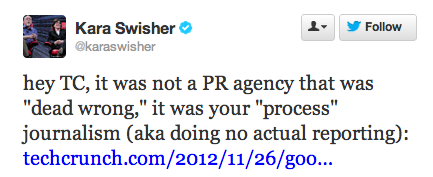I’ve always considered the relationship between PR professionals and journalists to be similar to an arranged marriage. We’re often brought together by editors and PR firm clients and told to “make it work.” And while there used to be a mutual respect between the two industries, the relationship has gone sour due to the advent of social media, ankle-high barriers of access and pageview journalism.
Neither industry is filled with perfect professionals, so some of the gripes about PR pros are warranted. However, the constant bashing (there are 99 million search results for ‘journalists hate PR people’) and public shaming is unproductive and doesn’t do anything to move the conversation, about how we should be working together, forward.
When you’re starting out in PR, you’re taught to have a huge amount of respect for reporters and the journalistic process. And with that you’re also warned not to ruffle the feathers of the ‘big, bad journalists’ for fear of you and your clients being blacklisted from a media outlet.
And while blacklisting, often done by silent omission at the discretion of a pissed off reporter is a valid concern, it doesn’t make much sense to continue to stand idly by in the midst of rapid industry changes that require both journalists and PR pros to work together.
After talking to a few of my colleagues about our personal journalist pet peeves, I discovered that there was a lot of overlap. Here, I list the top 9 issues that came up the most in conversation and offer some insight into why these things get under our skin.
My hope is that this will start a dialogue between the two parties and lead us to a place where our only goal is to improve lives by telling great stories.
The Top 9 Things Journalists Do that PR People Hate
1. Not responding to pitches or returning messages
Journalists complain about the large amount of PR pitches they get on a daily basis. They claim that it’s impossible to sift through all of their messages and they hate when PR people continue to follow-up with them regarding news that they’re not interested in.
If you’re not interested in a pitch, SAY THAT. The minute you tell us no, we’ll move on. But when you expect us to be psychic and ‘get the hint,’ you’ll continue to hear from us because we’re obviously interested in getting our clients into your publication.
Responding to our notes when you’re not interested in a topic also helps us get to know your preferences so that we can tailor our content to your taste(s).
2. Being inaccessible but talking about the importance of building relationships
The journalist that complains about PR people not trying to build a relationship is usually the same person who won’t answer the phone, return an email or agree to meet (until they need something from us on deadline).
3. Unwillingness or lack of urgency when it comes to correcting errors
It always baffles me when a journalist isn’t interested in correcting errors in their own stories. I understand saying no if someone wants you to change the tone of a story, but I don’t understand the cavalier attitude toward errors that could possibly mislead your readers or make you look bad (like consistently spelling a person’s name wrong).
4. Contacting our clients directly
Stop. Doing. This.
If you want to talk to an individual or brand and you know who their publicist is, do not contact the client directly. You know how this works, and 9 times out of 10 our clients are going to forward us your request, so you’ll end up dealing with us anyway. We’re hired for a reason, and that reason isn’t to make your job more difficult, but if you choose to try and bypass our process you end up doing that on your own.It’s our goal for our clients to have meaningful relationships with members of the media. And while we don’t need to “chaperone” every interaction, if you continue to undermine our role you may find that your access gets revoked altogether.
5. Thinking you’re the talent
We all know that there is a healthy dose of ego-tripping done by both sides, but there’s nothing more off-putting then a diva reporter who forgets that they have a job to do.
“The relationship between a journalist and a publicist is like an arranged marriage.”
Part of a PR professional’s job is to vet reporters before giving them access to our clients. Prior to most interviews, we brief our client on your work and explain to them why you are the ideal person to tell a particular story.
So there are few things worse than getting to an interview or meeting, after we’ve vouched for you, to find that you’re unprepared or haven’t done any research or due diligence on either the client, the industry or the situation.
7. Clamoring for freebies with no intent of coverage
Stop asking for product samples, additional event RSVPs and VIP access when you know you’re not going to review the product or cover the event. It hurts our clients who end up absorbing this cost and it also tarnishes your credibility and is another way to get your access revoked.
8. Cutting a story at the last minute after you’ve already conducted interviews (and then not telling us)
We get it, stuff happens. But if a story that we’ve spent days, weeks or months working on gets cut, the least you can do is let us know that it happened, and why it happened so that we can take this information back to our clients.
9. Lazy, reactive reporting (aka page view journalism)
Business is business, but it truly sucks to see some of my favorite publications dilute their content for page views at the expense of important stories that could have a huge impact on their readers’ lives. It’s also sad that because there’s this huge need to report something first, nobody bothers to check the facts which leads to situations like this: TechCrunch reports fake news and blames entire PR industry, again.

What other things do journalists do that get under your skin? Share in the comments.

